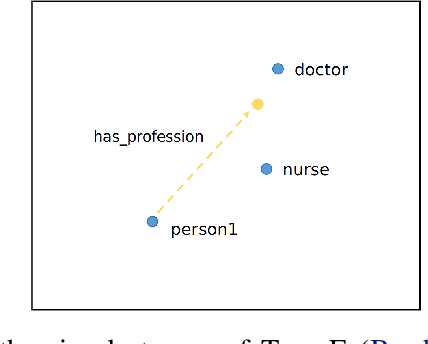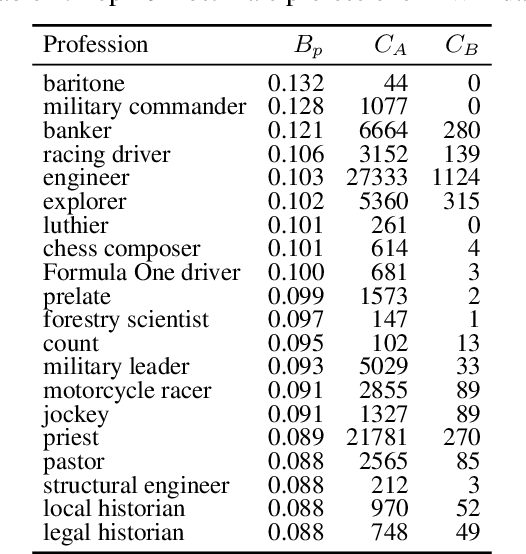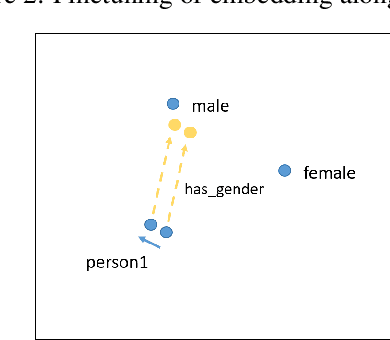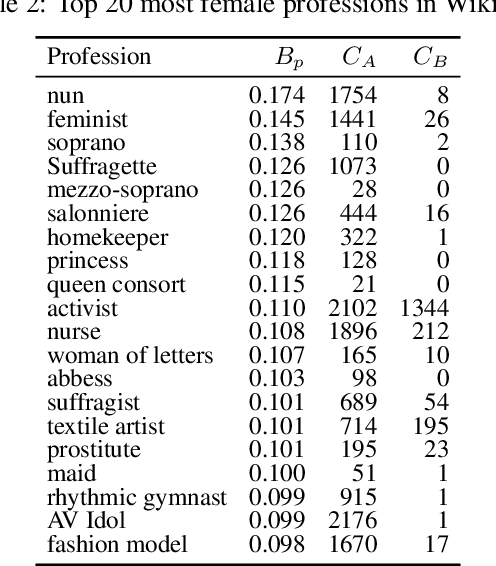Measuring Social Bias in Knowledge Graph Embeddings
Paper and Code
Dec 05, 2019



It has recently been shown that word embeddings encode social biases, with a harmful impact on downstream tasks. However, to this point there has been no similar work done in the field of graph embeddings. We present the first study on social bias in knowledge graph embeddings, and propose a new metric suitable for measuring such bias. We conduct experiments on Wikidata and Freebase, and show that, as with word embeddings, harmful social biases related to professions are encoded in the embeddings with respect to gender, religion, ethnicity and nationality. For example, graph embeddings encode the information that men are more likely to be bankers, and women more likely to be homekeepers. As graph embeddings become increasingly utilized, we suggest that it is important the existence of such biases are understood and steps taken to mitigate their impact.
 Add to Chrome
Add to Chrome Add to Firefox
Add to Firefox Add to Edge
Add to Edge